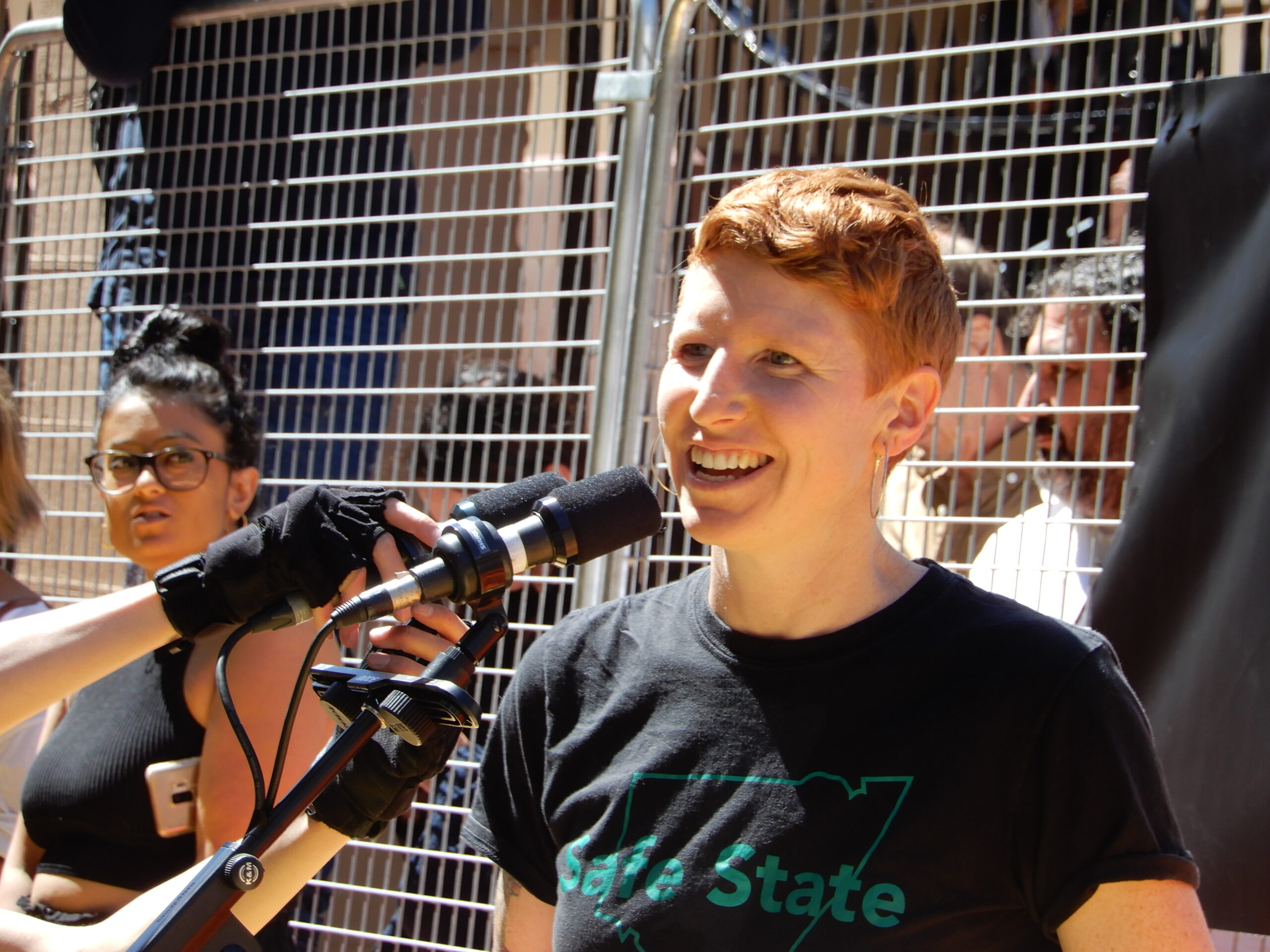Streamlining Is Penalising Victim-Survivors: An Interview With DVNSW’s Renata Field

The NSW Bureau of Crime Statistics and Research released a report on Wednesday, revealing that over the three decades from 1990, the rates of most major property and violent crime categories have dropped or remained stable, except a marked rise in sexual assault and other sexual offences.
Indeed, on the same day, BOCSAR released its crime statistics for the December quarter of 2020, which show all major categories trending downwards or stabilising over the 24 months prior, bar one: that being sexual assault, which climbed by 10 percent each year.
Of course, this is what the nationwide March for Justice rallies have been mobilising against this week: while the Australian community has seen significant drops in violent crime, the situation involving sexual assault – which overwhelming targets women – is only getting worse.
And Domestic Violence NSW (DVNSW) is drawing attention to a simmering situation in this state where the victims of these crimes – as well as all violent offences – are being penalised when seeking compensation, due to streamlining set in place by the commissioner in charge of their rights.
Barriers to compensation
Part of the NSW Department of Communities and Justice, Victims Services administers the Victims Rights and Support Act 2013 (NSW). This entails assisting victims of crimes in accessing the supports they’re entitled to, which include counselling, financial assistance and recognition payment.
The Victims Rights and Support Act established the Commissioner of Victims Rights. Currently, that position is held by Michelle Vaughan, who’s also been serving as the executive director of Victim Services since July 2019.
In an attempt to streamline its services, the commissioner implemented a series of reforms on 1 July last year. These involved shifting the burden of collecting evidence regarding a claim onto victim-survivors, which makes it more difficult for these traumatised people to access entitlements.
Following the sudden announcement of the reforms in April last year, organisations and individuals working within the sector have been campaigning to see the changes revoked. And one of the most prominent voices of opposition has been DVNSW.
Enough is enough
DVNSW policy and research manager Renata Field addressed the March for Justice protest outside NSW parliament on Monday. She told the crowd that DVNSW believes that First Nations women, all women and people from marginalised genders have “a right to live a life free from violence”.
“One in four Australian women experiences violence from a partner, one in five women have experienced sexual violence, and one in two has experienced sexual harassment,” Field said, adding that these statistics are “just a drop in the ocean” in terms of actual violence in the community.
Sydney Criminal Lawyers spoke to Renata Field about the impact the changes to Victims Services are having, the conflict of interest in the commissioner’s dual role, and how the March for Justice movement is a sign of change to come.

Firstly, in April last year, the NSW Commissioner for Victims Rights announced that changes were about to be made to Victim Services with the aim of streamlining its processes.
Due to vocal opposition from dozens of organisations in the sector, these reforms were twice paused, before being brought into effect on 1 July 2020.
Renata, what do the changes involve? And why are they problematic?
The changes were aiming to improve the time that Victim Services took to look at applications that ensure that victim-survivors get the compensation that they’re legally due via the Victims Support Act in NSW.
However, it just pushed the work somewhere else. Instead of Victim Services doing it as an organisation, victim-survivors who are experiencing trauma have to do that work to get it over the line.
While extremely under resourced speciality services and community legal centres are expected to do that work as well.
A brief overview of the changes, includes a 12 month time limit for getting evidence together to claim for payments.
They’ve made it so you couldn’t apply without bank details and government certified identification, which affects clients who have lost their ID due to fleeing without it. So, there’s a whole lot of work that services need to do before they can apply for support.
The third change was instead of counsellors being automatically allocated to victims, they get to choose from a website that has all the counsellors featured on it.
This sounds good in theory, but in practice what it means is there are a lot of counsellors, it’s overwhelming, and there’s no indication of their specialties.
As you described, the changes are detrimental for victim-survivors, yet the Commissioner for Victims Rights has implemented them.
In your opinion, why is the victims’ representative making circumstances more difficult for those she represents?
There’s a conflict of interest we’re concerned about as the Commissioner of Victims’ Rights is also the director of Victim Services.
So, she has a dual role to represent victims in NSW, but also to ensure that this organisation is effective and meets its KPIs. So, there’s a conflict.
Victim Services had received critiques that the applications weren’t being processed quickly enough, and certainly we agree that they needed to improve that.
But by just pushing the workload elsewhere, she hasn’t actually improved the service for victims.
Currently under review, these changes are set to be more detrimental towards vulnerable communities.
If the changes do prove too difficult to navigate for certain people, what are they being denied?
Under the Act, any victim of a crime in NSW has a right to access financial support, to access counselling and access a recognition payment due to the harm that’s occurred to them.
If they can’t access these supports because there are too many barriers, then these supports – that are legally theirs – won’t be available.
On Monday, you addressed tens of thousands of Sydneysiders at the March for Justice rally, which was sparked by the recent revelations regarding alleged rapes involving Liberal Party staff and the inadequate response of government.
How does this heightened focus on gendered violence in Australia reflect upon this more localised situation regarding victims’ compensation?
In the work that we are doing to address domestic and family violence we have to look at cultural changes in all institutions – in parliament, in our schools and in our workplaces – because the abuse and harassment that people experience is deep-seated and it’s cultural.
The work to improve this involves a whole-of-community approach.
Sticking to the March for Justice rallies. In your opinion, is this something of a watershed moment? Are we going to see substantial reforms come out of this?
It’s an incredible moment. It’s the next step from the #MeToo movement. It has come to Australia in a really powerful way.
We’ve seen how people speaking out about the abuse that they’ve experienced, like Rosie Batty, can lead to significant reforms.
So, I’m really hopeful that we will see some reforms that will stop the abuses that women and people from marginalised genders are experiencing.
And lastly, Renata, back to Victims Services, the victims’ rights commissioner was accepting submissions regarding the changes up until 5 March. And the scheme is about to undergo a statutory review.
What sort of outcomes does DVNSW want to see eventuate?
Firstly, we’ve asked for some transparency. We don’t believe that the organisation under scrutiny should be undertaking its own review.
So, we’re really happy that the statutory review is happening, as it will be done by an external organisation.
There really needs to be some transparency and accountability in the way that they operate.
What we really want on the ground is for victims to have access to the support that they need to heal. And this needs to be effective, easy and happen within a short turnaround.
We believe that the agencies that are paid for by the government to do the work, should be doing it, not passing the buck onto services.







